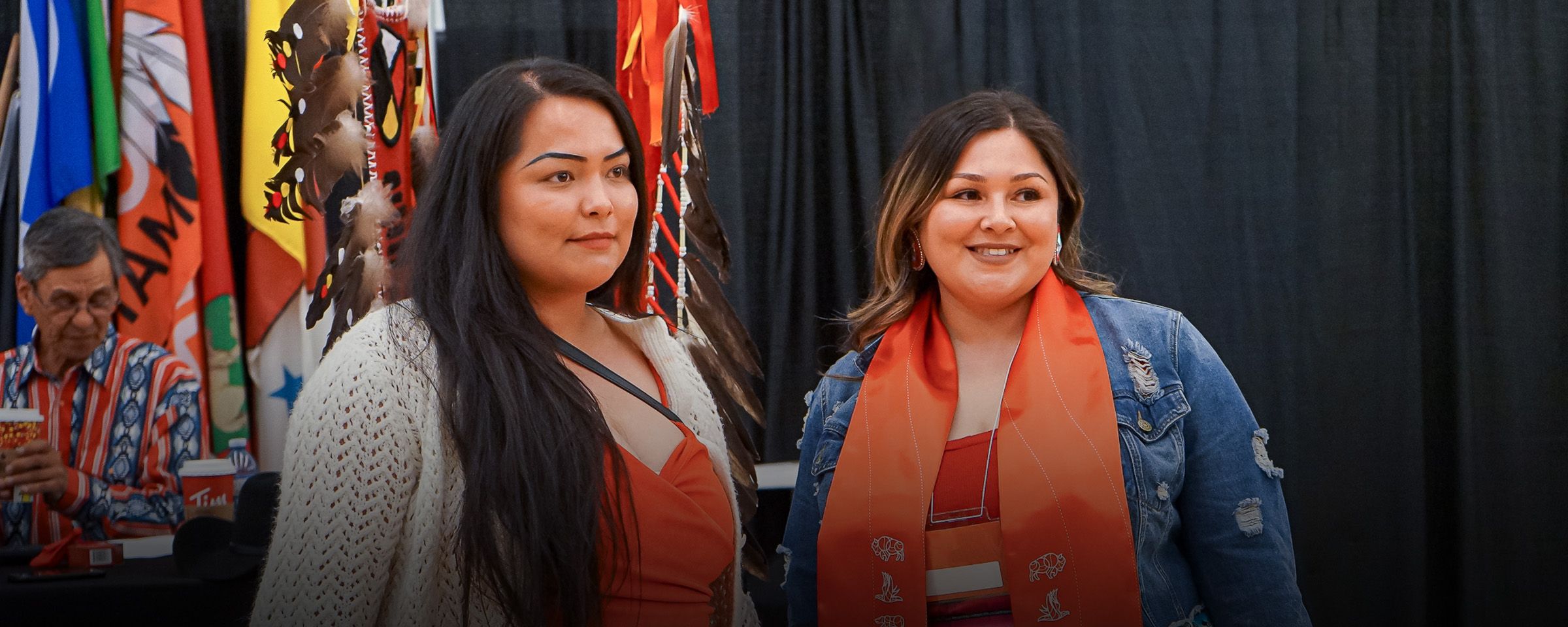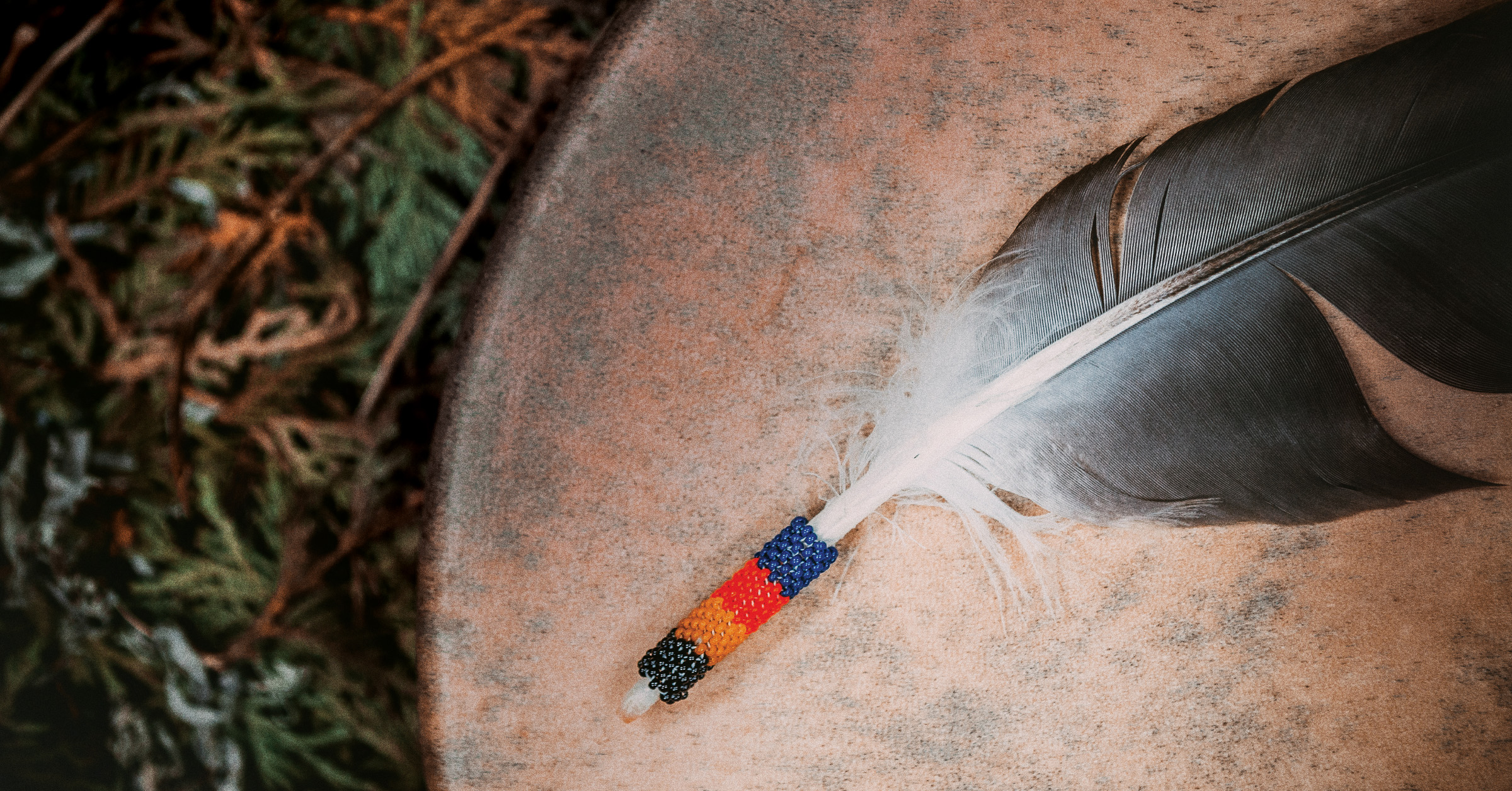2024 Mínwastánikéwin Award Recipients
The Mínwastánikéwin Award, named for the Cree word that means ‘to set it right’, was created in 2019 in partnership with RRC Polytech’s Campus Store during the first Truth and Reconciliation Week. Applicants were asked to write a one-page essay on what Truth and Reconciliation means to them as Residential and Day School Survivors and children of Survivors.
To this day, you might hear the words ‘Residential School legacy.’
‘Legacy’ is a Western concept, which means: ‘something transmitted by or received from an ancestor or predecessor or from the past.’
Countless Indigenous people have inherited the impacts that Residential Schools have had on parents, grandparents and great-grandparents – a legacy that none of them asked for.
Indigenous men, women, and Two Spirit people are uprooting the intergenerational cycles that were planted by the Residential School system.
Indigenous people are reclaiming their places in power.
Families are creating bright futures for their children.
Indigenous students are achieving their goals and finding ways to give back to their communities. They are creating new legacies for themselves, their children, and their communities.
The Mínwastánikéwin Truth and Reconciliation Award is named for the Ininimowin word that means “to set it right.”
As a post-secondary educational institution, RRC Polytech recognizes the role it plays in righting those wrongs. Every year, the Mínwastánikéwin Truth and Reconciliation Award is offered to Indigenous students who are willing to relate their experiences to Truth and Reconciliation and what it means to them.
Thanks to the generous support of the RRC Polytech community, funds for the Mínwastánikéwin Award are sourced from sales of original RRC Polytech Orange and Red shirts at the Campus Store. Enough shirts were sold last year to support the award going to two students.
Peggy Guimond, a recent graduate of the Business Accounting and Management program, says she was motivated to apply for the award by the memory of her late grandfather, whom was a Residential School Survivor and witnessed the government’s apology issued in Ottawa in 2008.
“It still makes me emotional, thinking of my late grandfather being a Survivor. If he wasn’t one, I wouldn’t be here today,” said Guimond.
The impacts of colonial systems have affected her family for generations. From her grandfather’s experience in Residential School, to her mother attending day school, and her dad, a 60s Scoop Survivor, many people in her family did not get to grow up with their families in their own culture and teachings – something she is committed to changing.
Guimond says that she fostered several children and adopted her niece and nephew out of the Child and Family Services system – the same system which she had grown up in and aged out of. Though she calls herself a success story coming out of the system, she is familiar with the support young people need today and is determined to give back to her community by supporting them in an environment where they are loved and their culture is welcomed and celebrated.
She says being able to grow and get educated in her community was the greatest experience she had – one that was not afforded to her relatives, but one she wants to ensure younger generations would be able to experience once again.
Finding out she was a recipient of the Mínwastánikéwin Award pulled at her heartstrings, she said. Because of the award, she was able to complete her program with no financial barriers and she could focus on her family – something she is extremely grateful for.
These systems have shaped Guimond’s family for a long time, including her own experiences in the child welfare system, but she is breaking that cycle and finding ways to support the young people in her family so those impacts, and that legacy, don’t continue any further.
Camille Munro is a Nursing student from Winnipeg with status in Fox Lake Cree Nation and familial roots in Churchill, Manitoba. Her own family has been deeply impacted by the 60’s Scoop – of her thirteen aunties and uncles, twelve were taken and placed in foster care or adopted out to white families. Some of them had run away from those homes and they eventually found each other, which Munro credits to their resilience and determination.
Because of their will to find each other again, Munro grew up with her cousins – an opportunity she says she wouldn’t have had otherwise. Today, her own children are growing up alongside their cousins and relatives in a big, tight-knit family, which Munro says is something the whole family takes pride in.
As she got older, she began to truly understand the impacts that Residential and Day Schools had on her family and the way those impacts affected their experiences. When she started learning about her family and her culture later in her life, she came to know the extent of the impacts of the unresolved trauma in her family. She herself attended several different schools as a child, including a Christian private school and a Catholic private school, and later struggled with substance abuse as an adult.
She started her sobriety journey eight years ago when she began learning more about her culture, and she practiced the knowledge her mom gave her – she participated in Ceremony, learned teachings from Elders, and engaged in a lot of self-reflection on how to move her life forward in a good way.
Her biological mother passed away in January of this year when Munro had been recovering from her own major surgery in December – she was managing funeral expenses and the sacred fire for her mother all while juggling assignments and exams at school during her recovery period. Finances were tighter for her than they ever were. She says the award came to her at a time when she really needed support.
Munro is a single parent to four children and became a young mom at 18. She’s the sole provider for her children, so any financial support she earns goes to her family. She says funds like these are what keep the lights on in her home and food in the cupboard while she’s attending school full time.
Munro says her family has been invaluable to her journey. Her kids have been huge supports for her academic journey – her eldest daughter is her right hand and Munro says there’s no way she could have done it without her help. Her father passed away in June, and she says it’s been challenging to deal with the grief, but she pushes through it all with the support of her family.
Munro is chasing her dream of becoming a nurse and says she made a lot of connections during her time at the College. She gravitated towards her Indigenous peers who had shared a lot of common experiences, and her instructors were incredibly supportive of their academic journeys.
“We need to take up more space in these places – we have to fight, but it doesn’t mean we don’t belong there. I have my ancestors behind me. I want people to know that it’s never too late to chase your dreams. Use medicine, take care of yourself, go to Sweats. Learn about your family, your traditions – learn to be proud of your heritage and culture, take back your identity and learn your truth. You don’t have to wait,” said Munro.
Guimond and Munro, and many other Indigenous students, have faced barriers that so many others don’t even have to think about when they decide to go to school. That is why awards like this exist. It is an acknowledgement of those barriers and a response to “set it right.”
Getting an education on their terms and taking power back is how Guimond and Munro are ensuring that the future is better for themselves and their communities, their young people and their loved ones.
RRC Polytech recognizes its role as an education institution to advance Truth and Reconciliation and is honoured to support these two recipients and all Indigenous learners in their academic journeys.
To learn more about the Mínwastánikéwin Award, see the Awards, Bursaries and Scholarships catalogue.

